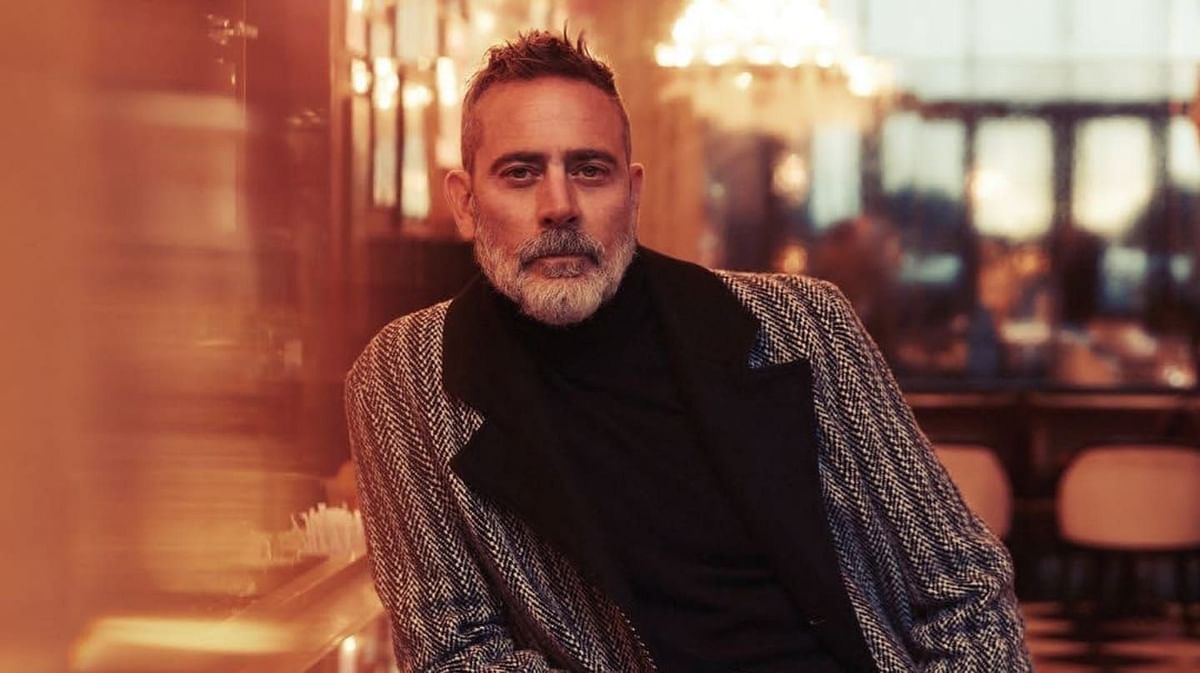Why Did They Kill Denny Duquette Off? A Comprehensive Analysis
When the TV show "General Hospital" announced the death of beloved character Denny Duquette, fans were left in shock and disbelief. For decades, Denny had been a staple of the soap opera world, captivating audiences with his charm and complex storylines. But why did they kill Denny Duquette off? This question has sparked countless discussions and debates among fans, as the decision to eliminate such an iconic character was met with both confusion and sadness.
The removal of Denny Duquette from "General Hospital" was not just a random choice. It was a strategic decision made by the show's writers and producers to revitalize the storyline and bring fresh perspectives to the series. Understanding the reasons behind this move requires a deeper dive into the world of soap operas, the evolution of characters, and the challenges faced by long-running TV shows.
In this article, we will explore the reasons behind Denny Duquette's death, analyze the impact on fans and the show, and examine how this decision fits into the broader context of the soap opera industry. Whether you are a die-hard fan of "General Hospital" or simply curious about the dynamics of TV storytelling, this article will provide valuable insights into one of the most controversial decisions in soap opera history.
- Janice Nichole Nude A Deeper Look Into Her Life And Career
- Aayushi Jaiswal Web Series Latest Releases And More
Table of Contents
- Biography of Denny Duquette
- Why Did They Kill Denny Duquette Off?
- Understanding the Dynamics of Soap Operas
- The Impact on Fans
- Evolution of Denny's Storyline
- Challenges in the Soap Opera Industry
- Fan Reactions and Opinions
- Denny Duquette's Legacy
- Future Directions for "General Hospital"
- Conclusion
Biography of Denny Duquette
Denny Duquette, portrayed by actor Michael Park, was a pivotal character in the long-running soap opera "General Hospital." Introduced in the 1980s, Denny quickly became a fan favorite due to his dynamic personality, intriguing storylines, and complex relationships with other characters.
Data and Biodata
| Attribute | Details |
|---|---|
| Name | Denny Duquette |
| Actor | Michael Park |
| First Appearance | 1980s |
| Occupation | Journalist, Editor |
| Significant Relationships | Monica Quartermaine, Alan Quartermaine |
Denny's character was known for his professional career as a journalist and editor, which added depth to his role in the series. His relationships with other characters, particularly Monica Quartermaine, were central to many of the show's most memorable storylines.
- Masafuncom A Hub Of Entertainment And Information
- Ultimate Guide To Hdhub 4u Movies Everything You Need To Know
Why Did They Kill Denny Duquette Off?
The decision to kill off Denny Duquette was rooted in several factors, including creative direction, character development, and the need to refresh the storyline. While fans were initially taken aback by the decision, there were several logical reasons behind it.
Refreshing the Storyline
Soap operas often rely on dramatic twists to keep audiences engaged. By eliminating a long-standing character like Denny Duquette, the writers of "General Hospital" aimed to create new opportunities for character development and storyline evolution. This decision allowed them to introduce fresh perspectives and explore new narratives that would resonate with both old and new viewers.
Character Arc Completion
Every character in a soap opera has an arc that contributes to the overall narrative. For Denny Duquette, his death marked the completion of a significant chapter in his story. It provided closure for his relationships and storylines, allowing the show to move forward without being tied to past events.
Understanding the Dynamics of Soap Operas
To fully understand why Denny Duquette was killed off, it is essential to examine the dynamics of soap operas as a genre. Long-running TV shows face unique challenges, including maintaining audience interest, adapting to changing viewer preferences, and staying relevant in a competitive market.
Evolution of Storylines
Soap operas thrive on dramatic twists and unexpected turns. The death of a major character is one of the most impactful ways to shake up the storyline and keep audiences engaged. By eliminating Denny Duquette, "General Hospital" was able to create new conflicts, alliances, and storylines that would captivate viewers.
The Impact on Fans
The removal of Denny Duquette from "General Hospital" had a profound impact on fans. Many viewers felt a deep connection to the character and were saddened by his departure. However, the reaction was not entirely negative, as some fans appreciated the creative direction taken by the show.
Emotional Reactions
- Fans expressed their sadness and disappointment through social media platforms.
- Some viewers organized tribute events to honor Denny Duquette's legacy.
- Others acknowledged the necessity of change in long-running TV shows.
Evolution of Denny's Storyline
Denny Duquette's journey on "General Hospital" was filled with memorable moments and significant developments. From his early days as a journalist to his complex relationships with other characters, his storyline evolved over the years, leaving a lasting impact on the show.
Key Storylines
- Denny's relationship with Monica Quartermaine was one of the most iconic storylines in the series.
- His professional career as a journalist added depth to his character and provided opportunities for dramatic storytelling.
- His involvement in various scandals and controversies kept audiences hooked.
Challenges in the Soap Opera Industry
The soap opera industry faces numerous challenges, including declining viewership, changing audience demographics, and increased competition from other forms of entertainment. These challenges influence creative decisions, such as the removal of long-standing characters like Denny Duquette.
Declining Viewership
With the rise of streaming services and on-demand content, traditional soap operas have seen a decline in viewership. To combat this trend, shows like "General Hospital" must continuously innovate and adapt to changing audience preferences.
Fan Reactions and Opinions
Fans of "General Hospital" had mixed reactions to the death of Denny Duquette. While some were heartbroken, others recognized the necessity of change in a long-running series. Social media platforms became a hub for discussions and debates, with fans sharing their thoughts and opinions on the decision.
Constructive Criticism
- Fans praised the show for its bold storytelling choices.
- Others criticized the decision, arguing that Denny's character could have been developed further.
- Many viewers expressed hope for new characters and storylines that would honor Denny's legacy.
Denny Duquette's Legacy
Despite his departure from "General Hospital," Denny Duquette's legacy lives on. His character remains a beloved figure in the soap opera world, remembered for his charm, wit, and complex storylines. The impact of his death on the show and its characters will continue to be felt for years to come.
Contributions to the Show
- Denny's character brought depth and complexity to "General Hospital."
- His relationships with other characters created memorable storylines that resonated with audiences.
- His death marked a turning point in the show's history, paving the way for new narratives and character arcs.
Future Directions for "General Hospital"
As "General Hospital" moves forward, the show's writers and producers face the challenge of building on the legacy of characters like Denny Duquette while introducing new elements to keep audiences engaged. The decision to kill off Denny was just one of many strategic moves aimed at revitalizing the series and ensuring its continued success.
Innovative Storytelling
To remain relevant in today's entertainment landscape, "General Hospital" must embrace innovative storytelling techniques and adapt to changing audience preferences. This includes introducing new characters, exploring diverse storylines, and leveraging digital platforms to reach a wider audience.
Conclusion
The decision to kill off Denny Duquette from "General Hospital" was a bold move that sparked intense discussions and debates among fans. While the choice may have been met with sadness and confusion, it was a necessary step in the evolution of the show. By analyzing the reasons behind this decision, understanding the dynamics of soap operas, and examining the impact on fans, we gain a deeper appreciation for the complexities of TV storytelling.
In conclusion, the legacy of Denny Duquette will continue to inspire future storylines and character arcs on "General Hospital." As the show moves forward, it is essential to embrace change and innovation while honoring the contributions of beloved characters like Denny. We invite you to share your thoughts and opinions in the comments section below and explore other articles on our site for more insights into the world of soap operas.
Article Recommendations
- Bold Move An Indepth Look At Lyra Crows Life Career And Controversies
- Intriguing Insights Into Subhashree Sahu Xxx Mms All You Need To Know


Detail Author:
- Name : Coleman Wuckert
- Username : njohnson
- Email : west.billie@gmail.com
- Birthdate : 1986-01-22
- Address : 1117 Cartwright Rue Sauerside, AL 58165
- Phone : +12098747616
- Company : Carter, Lehner and Cartwright
- Job : Announcer
- Bio : Ad magnam rerum quaerat quasi illo eos repudiandae. Maxime numquam id qui consequatur id. Expedita praesentium dolorem maiores et quasi delectus. In accusamus ipsum doloremque et.
Socials
linkedin:
- url : https://linkedin.com/in/blindgren
- username : blindgren
- bio : Ut ipsam possimus qui.
- followers : 1435
- following : 1499
tiktok:
- url : https://tiktok.com/@lindgren2022
- username : lindgren2022
- bio : Architecto rerum minus quam magni. At omnis necessitatibus aut quidem voluptas.
- followers : 1987
- following : 2036